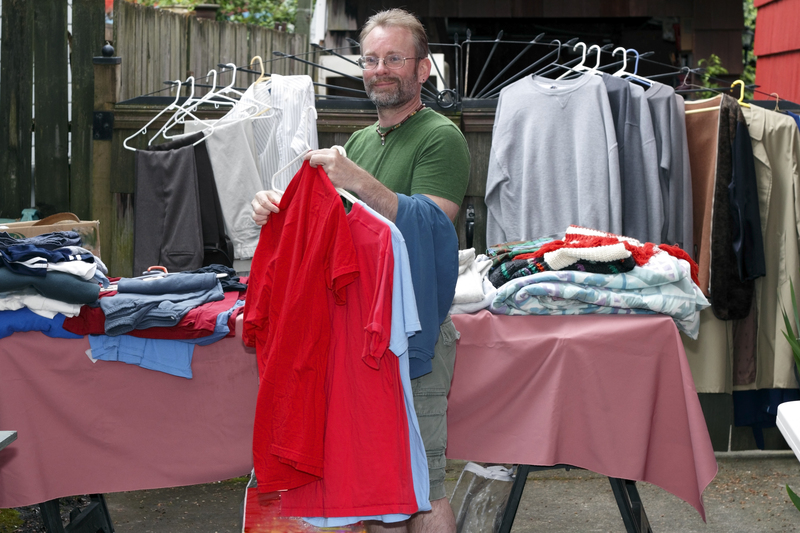Smart Ways to Save on Bulky Waste Disposal
Bulky waste disposal has become a critical concern for homeowners, landlords, businesses, and municipalities alike. As urban living and consumption increase, so does the need to responsibly and cost-effectively get rid of unwanted large items. Fortunately, there are smart ways to save on bulky waste disposal without compromising environmental values or facing hefty fines. This comprehensive guide explores clever strategies, sustainable options, and actionable tips to make bulky items removal more manageable and affordable.

Understanding Bulky Waste: What Qualifies as Bulky Items?
Before exploring efficient bulky waste removal strategies, it's important to define what constitutes bulky waste. Typically, these are large pieces that cannot be collected with standard household waste, such as:
- Old sofas, couches, and armchairs
- Broken furniture (beds, wardrobes, desks, tables)
- Kitchen appliances (fridges, washing machines, ovens)
- Mattresses and bed frames
- Carpets, rugs, and large textiles
- Garden equipment, bicycles, and more
Proper disposal of large waste items is often regulated by local authorities and, if not managed wisely, can lead to unexpected expenses and legal issues.
Why Smart Bulky Waste Disposal Matters
Disposing of large household or commercial items goes beyond just clearing physical space; it involves cost considerations, environmental responsibility, and even the potential for giving items a second life. Smart bulky waste management not only saves you money but also reduces landfill waste, helps others, and supports a cleaner planet.
Common Challenges in Bulky Waste Disposal
- High Council Collection Fees: Local authorities often charge per item or per load.
- Logistics: Transportation difficulties and access issues, especially for large or heavy items.
- Landfill Taxes: Disposing at landfill sites comes with increasing disposal fees and environmental taxes.
- Legal Restrictions: Fly-tipping is illegal and incurs hefty penalties.
Top Smart Ways to Save Money on Bulky Waste Disposal
1. Take Advantage of Council Bulky Waste Collections
Many local councils offer a bulky waste collection service for residents who need to dispose of large items. Often, these services are subsidized or available for a nominal fee per collection or item.
- Check your local council's website for free bulky waste collection periods or reduced rates for seniors, students, or low-income households.
- Combine multiple items in a single booking to maximize the value of your collection fee.
- Ensure items are correctly placed for collection - some councils refuse over-sized, loose, or hazardous items.
2. Donate Usable Items to Charity or Community Groups
Instead of paying for large waste disposal, why not let your bulky items benefit someone else? Many charities and social enterprises offer free large-item collection for reusable furniture and appliances.
- Organizations like the British Heart Foundation, Emmaus, and local furniture reuse networks accept sofas, beds, and white goods that meet safety standards.
- Arrange doorstep collection and save on disposal fees while supporting a charitable cause.
- Check if your items require a fire safety label; most charities only accept soft furnishings with original tags attached.
Donating extends your items' lifespan and keeps them out of landfill!
3. Use Sharing Economy Apps and Online Marketplaces
Smart bulky rubbish removal doesn't always mean disposing--sometimes, it means rehoming! Platforms like Freecycle, Facebook Marketplace, Gumtree, and Olio allow you to list bulky items for free or low-cost pickup.
- Post photos and descriptions of your unwanted items, even if slightly damaged--many people upcycle, repair, or reuse materials.
- Arrange for buyers or collectors to pick up items, saving transport and collection charges.
- Set realistic expectations for collection times and ensure safe, contact-free handovers.
4. Hire Private Bulky Waste Removal Services Wisely
If council services or donation avenues are not suitable, private waste removal companies offer quick and convenient solutions. However, prices can vary widely. Here's how to get the best deal on large item disposal:
- Ask for itemized quotes from multiple companies to compare value.
- Check if the company is a registered waste carrier by searching the Environment Agency database.
- Opt for 'man and van' services that charge by total volume rather than per item--sharing your slot with neighbors can cut costs even further!
- Negotiate discounts for multiple items or regular business contracts.
Always demand a waste transfer note to protect yourself from fly-tipping fines!
5. Visit Your Local Household Waste Recycling Centre
If you have access to a vehicle and some physical help, self-disposal at your council's official recycling center could be the most cost-effective bulky waste solution.
- Most recycling centers accept a wide range of large items from residents, often for free or a small charge.
- Check access restrictions; some centers require proof of residence or vehicle permits.
- Sort items (e.g., wood, metal, electrical) in advance for quicker unloading and improved recycling rates.
- Use trailers or van hire for larger house clearances and share the trip with friends or neighbors.
Never dump unwanted items outside the recycling center, as this is considered illegal fly-tipping.
6. Upcycle, Repurpose, or Sell for Parts
One of the savviest ways to save on disposal of bulky household items is to give them a new lease of life:
- Transform old wardrobes, cabinets, and doors into garden sheds, bookcases, or home decor.
- Salvage metal frames, springs, and electrical components--scrap yards may pay by weight for certain materials.
- Host a garage sale or car boot to find bargain-hunter buyers for worn but usable furniture and goods.
Upcycling is both creative and eco-friendly!
Bulky Waste Disposal Tips for Landlords & Small Businesses
Bulk Clearance Cost Management
- Schedule clearances strategically--combine tenant move-out waste with refurbishment debris for economy of scale.
- Work with removal companies that offer commercial contracts or free online booking systems.
- Educate tenants about recycling and responsible disposal to cut end-of-tenancy costs.
Prevent Illegal Dumping & Associated Fines
- Use secure bins or locked areas to deter fly-tipping.
- Document all disposal with licensed providers--keep digital receipts for reference.
- Include clear disposal clauses in tenancy agreements to protect property and reputation.
Bulky Waste Disposal: Environmental Considerations
Saving on large waste removal isn't only about the budget-- it's about reducing the environmental impact of your waste. Landfilled bulky items take up significant space and can leach toxic substances.
- Recycle wherever possible: Recycling conserves resources and lowers disposal costs.
- Donate before dumping: Someone else may benefit from your unwanted items.
- Avoid hazardous waste routes: White goods and electronics often require specialist handling; check with local recycling centers first.
Adopting eco-friendly disposal habits helps your wallet and the world!
How to Organize a Cost-Effective Bulky Waste Clearance
- Inventory and Categorize: List all items for disposal, noting condition, size, and reusability.
- Get Quotes: Research all possible disposal avenues--council, charities, private firms, and recycling centers.
- Bundle and Schedule: Combine items to maximize single collection or trip benefits.
- Prepare in Advance: Disassemble furniture, clear access paths, and have ID or documentation ready.
- Document Everything: Keep photos and paperwork to prove lawful disposal if questioned.

FAQs: Saving Money on Bulky Waste Disposal
1. Are there any free bulky waste removal options?
Some councils offer one free bulky waste collection per year or heavily reduced rates for the vulnerable. Charities and online platforms are usually free if the items are wanted and can be reused.
2. How do I prevent fly-tippers from dumping on my property?
Install cameras or signage, use secured bins, and report any illegal dumping to your local authority swiftly. Always store waste out of public view until the scheduled disposal date.
3. What do I do with hazardous bulky items?
Contact your council or a specialist licensed company. White goods, electronics, and certain furniture types require special processing for safe recycling or disposal.
Conclusion: Embrace Smart, Sustainable, and Affordable Bulky Waste Solutions
Smart ways to save on bulky waste disposal abound when you approach the challenge with a little research, planning, and creativity. Whether leveraging local government schemes, donating to charity, or embracing the sharing economy, you can cut costs, avoid legal trouble, and support environmental goals.
By implementing these practical strategies, you not only save money on bulky rubbish removal but also take a significant step towards sustainable living. Next time you face the daunting task of bulky waste clearance, remember: the best solution is often the smartest, not the most expensive!
For further tips on affordable large item disposal, check with your local council or visit environmental charity websites. Every action counts in building a cleaner, greener community!
